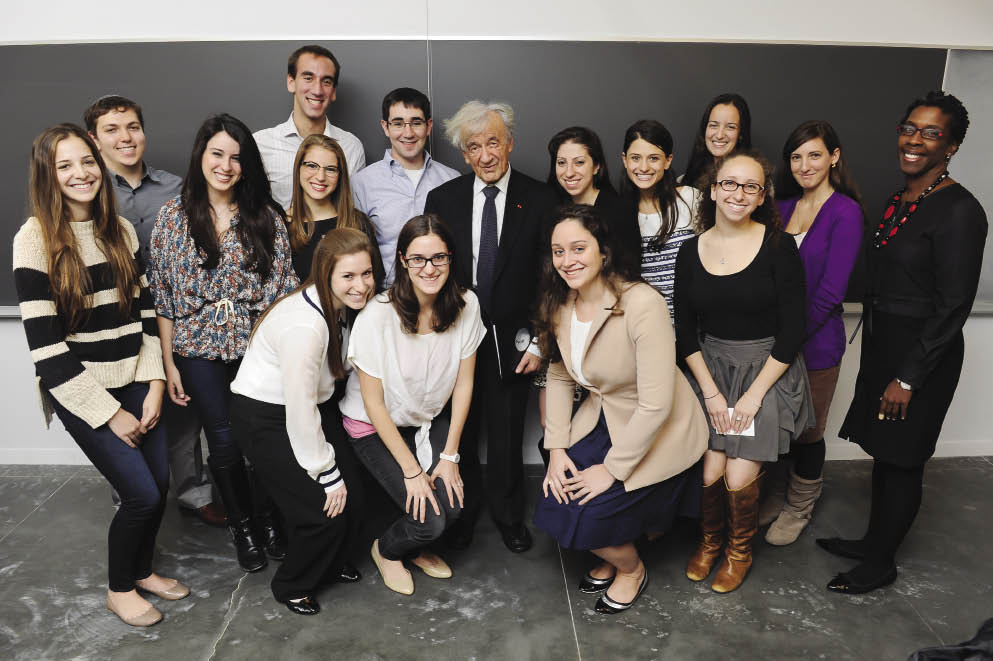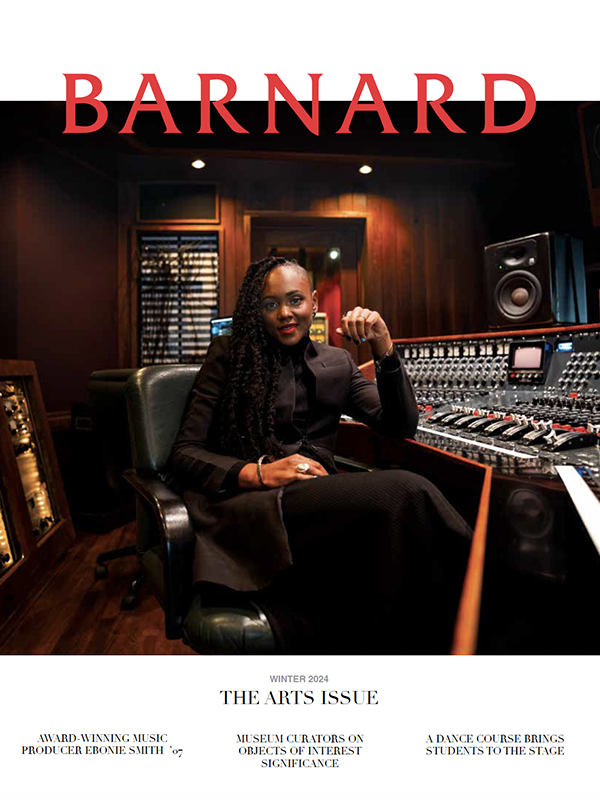The audience of about 400 people packed into The Diana Center’s Event Oval fell nearly silent one night this past fall when Nobel laureate, Holocaust survivor, writer, professor, and activist Elie Wiesel began his talk with these words, “I’ll tell you a story. I love stories.” The story Wiesel offered (about the Biblical Adam’s search for himself), and others that followed, served not only to entertain, but also to awaken and inspire. With the audience in his thrall, Wiesel interlaced his October 11 talk with references rooted in Jewish culture, text, and history, while adhering to universal themes of injustice, indifference, and the interconnectedness of humanity.
The event, sponsored by The Ingeborg, Tamara, and Yonina Rennert Women in Judaism Forum Fund, began with an introduction by Barnard President Debora Spar, who praised Wiesel for widening his pursuit of human dignity and peace beyond the Jewish people “to embrace all oppressed people and races.”
Wiesel is the author of the Holocaust memoir Night, based on his experiences as an inmate of three concentration camps, as well as more than 50 other works of fiction and nonfiction. In awarding Wiesel his 1986 Nobel, the Nobel Committee called Wiesel a “messenger to mankind” for his “practical work in the cause of peace.”
It is this pursuit of peace and justice that has fueled Wiesel’s work for decades. “I fought not only injustice,” Wiesel told the crowd, “but also indifference.” He continued, “The opposite of love is not hatred, but indifference. The opposite of knowledge is indifference. The opposite of culture is indifference. Every class you take, every book you read: Always remember, indifference is not an option.”
Wiesel, at home on the stage and known for his eloquent oratory, spoke largely extemporaneously, his ease making it seem at times as if the audience members were guests in his living room. Yet, he gave heartfelt and earnest advice, “Where something is wrong, denounce it immediately. Waiting only helps the perpetrator, never the victim.
“A person can be defined by his or her quest,” he observed, adding, “There is nothing more elegant or exciting for me than to study together [with friends],” mentioning his passion for Talmud, how it “becomes a melody.” His words then darkened, “My enemy also has a quest. His quest is conquest, humiliation, domination.”
Although the audience included several Holocaust survivors (and their descendants as well) Wiesel, who is 84, was moved to suggest that he was “probably the oldest man in the room.” But he then affirmed, “We are all the same.”
“The world is not perfect, and it never has been. Something must be done to save it,” he exhorted. “We are all connected. God alone is alone; human beings are not. We must open our eyes and our hearts to those who need.”
After the speech, President Spar moderated audience questions, including one asking whether the Holocaust could happen again. “There is a man in this world whose name is Ahmadinejad,” Wiesel answered, referring to the Iranian president. “…Head of a powerful nation, he goes around saying openly and repeatedly that he wants to destroy the Jewish state. My advice to the [U.S.] president: “Why don’t we arrest him and bring him to The Hague, charge him with a plan to destroy an entire people – a genocide.”
Wiesel concluded his talk by reading from what he called “his credo,” which underscored many of the principles he addressed. “I belong to a traumatized generation that often felt abandoned by God and betrayed by mankind,” he said. “Yet I know that even in darkness, on the edge of the abyss, it is possible to dream exalted dreams of compassion.”

